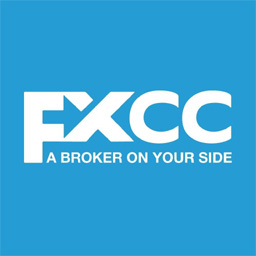The ECB Meeting Schedule 2025 is a must-watch for anyone following eurozone markets. These key dates, set by the European Central Bank’s Governing Council, include monetary policy meetings that influence interest rates, euro value, and market volatility. Traders who keep an eye on these announcements, especially those from the best forex brokers – gain crucial insights for timing their trades and protecting their strategies. Below is your go-to calendar for the ECB’s 2025 policy meetings.
Understanding the ECB
Before diving into the meeting schedule, let’s briefly understand the ECB’s role and responsibilities. Established in 1998, the ECB is headquartered in Frankfurt, Germany. Its primary objectives include maintaining price stability by controlling inflation and supporting economic growth and job creation in the Eurozone. To achieve these goals, the ECB employs various tools, with interest rates being one of the most prominent.

Table of Contents
The ECB Meeting Dates 2025
The ECB conducts several types of meetings, but the most anticipated and closely watched are the monetary policy meetings. These typically occur every six weeks. During these meetings, the ECB Governing Council assesses the current economic situation, reviews financial market developments, and decides on the appropriate course of monetary policy.
The European Central Bank (ECB) Governing Council typically holds eight monetary policy meetings per year. The exact dates for these meetings are decided in advance and published on the ECB’s website.
2025 ECB Monetary Policy Meetings
The 2025 ECB monetary policy meeting dates are 16-17 April, 4-5 June, 23-24 July, 10-11 September, 29-30 October, and 17-18 December. Most meetings consist of two days of meetings, with the second day typically followed by a press conference and interest rate decision.
| Monetary Policy Meeting | Non-monetary Policy Meeting |
|---|---|
| 30 January | – |
| – | 19 February |
| 6 March | 26 March |
| 17 April | – |
| – | – |
| 5 June | – |
| 24 July | – |
| 11 September | 24 September |
| 30 October | – |
| – | 19 November |
| 18 December | – |
Press Conferences
Following each monetary policy meeting, the ECB holds a press conference where the President, currently Christine Lagarde, provides insights into the decisions made. These press conferences are critical for financial markets as they offer guidance on interest rate changes, asset purchases, and the central bank’s overall policy stance.
Market Impact
Why are these meetings so crucial for financial markets and investors? The ECB’s decisions, especially regarding interest rates, have a direct impact on borrowing costs for businesses and consumers. When the ECB lowers interest rates, it can stimulate borrowing and spending, potentially boosting economic growth. Conversely, rate hikes can cool down an overheating economy and combat inflation.
Apart from interest rates, the ECB’s quantitative easing (QE) programs and asset purchases also affect markets. The announcement of QE programs can lead to increased demand for bonds, driving their prices higher and yields lower.
Global Repercussions
The ECB’s actions don’t just affect the Eurozone; they have a global reach. Changes in ECB policy can influence currency exchange rates, impacting international trade and investment. For instance, a dovish stance, which suggests lower interest rates for a more extended period, can weaken the euro, making Eurozone exports more competitive.
FAQs
What is the ECB Meeting Schedule?
The ECB Meeting Schedule outlines the official dates when the European Central Bank’s Governing Council gathers to decide on monetary policy, interest rates, and economic outlook. These meetings often create significant market movements in the euro and global forex markets.
How often does the ECB hold monetary policy meetings?
The ECB typically holds eight monetary policy meetings each year. These sessions focus on key decisions regarding interest rates, inflation management, and eurozone financial stability. Each is followed by a press conference to share updates with the public.
Why are ECB meetings important for forex traders?
ECB decisions directly affect the euro’s strength, which impacts forex pairs such as EUR/USD, EUR/GBP, and EUR/JPY. Traders watch these meetings closely to adjust strategies around potential market volatility.
Where are ECB meetings usually held?
Most ECB meetings take place in Frankfurt, Germany, the headquarters of the European Central Bank. Occasionally, meetings are held in other eurozone member countries, such as Italy.
What’s the difference between monetary policy and non-monetary policy meetings?
Monetary policy meetings focus on setting interest rates and economic policies, while non-monetary policy meetings cover administrative, legal, and organizational matters without immediate impact on financial markets.






